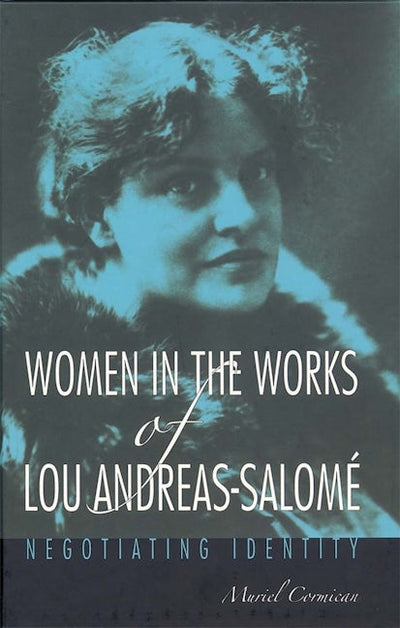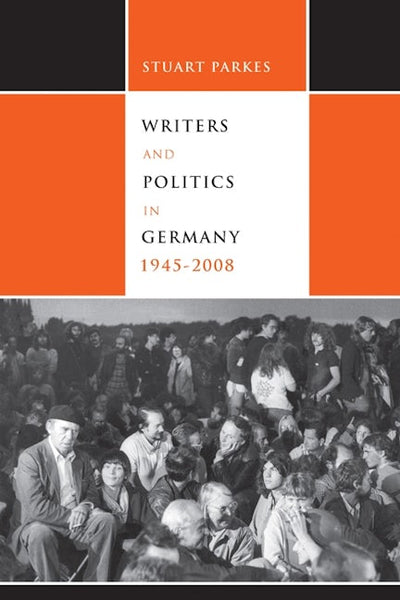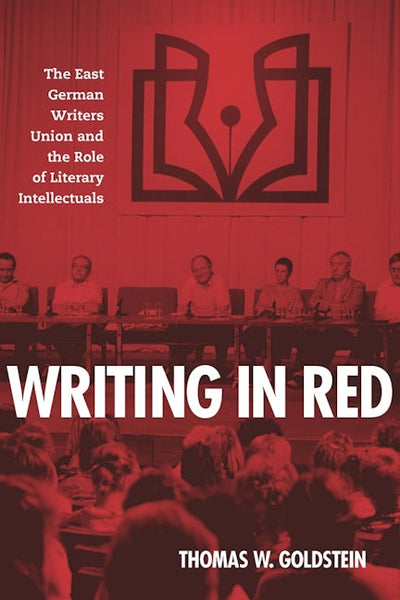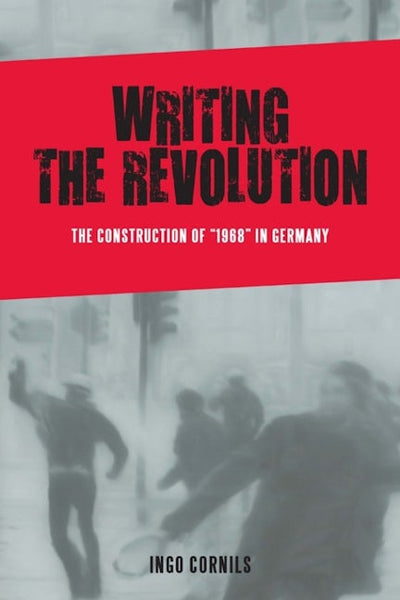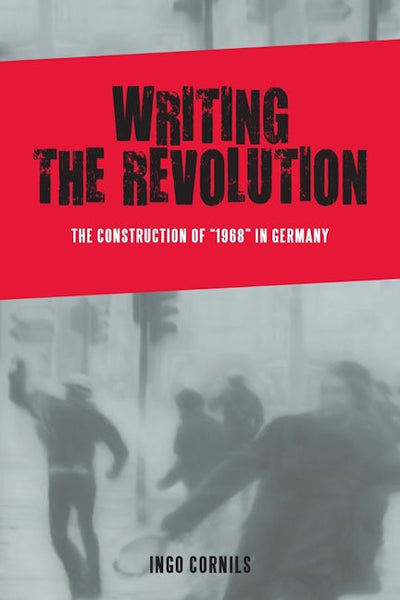-
Antiques & Collectibles
-
Architecture
-
Art
-
Bibles
-
Biography & Autobiography
-
Body, Mind & Spirit
-
Business & Economics
-
Comics & Graphic Novels
-
Computers
-
Cooking
-
Crafts & Hobbies
-
Design
-
Education
-
Family & Relationship
-
Fiction
-
Foreign Language Study
-
Games & Activities
-
Gardening
-
Health & Fitness
-
History
-
House & Home
-
Humor
-
Juvenile Fiction
-
Juvenile Nonfiction
-
Language Arts & Disciplines
-
Law
-
Literary Collections
-
Literary Criticism
-
Mathematics
-
Medical
-
Miscellaneous
-
Music
-
Nature
-
Performing Arts
-
Pets
-
Philosophy
-
Photography
-
Poetry
-
Political Science
-
Psychology
-
Reference
-
Religion
-
Self-Help
-
Science
-
Social Science
-
Sports & Recreation
-
Study Aids
-
Technology & Engineering
-
Transportation
-
Travel
-
True Crime
-
Young Adult Fiction
-
Young Adult Nonfiction
-
Antiques & Collectibles
-
Architecture
-
Art
-
Bibles
-
Biography & Autobiography
-
Body, Mind & Spirit
-
Business & Economics
-
Comics & Graphic Novels
-
Computers
-
Cooking
-
Crafts & Hobbies
-
Design
-
Education
-
Family & Relationship
-
Fiction
-
Foreign Language Study
-
Games & Activities
-
Gardening
-
Health & Fitness
-
History
-
House & Home
-
Humor
-
Juvenile Fiction
-
Juvenile Nonfiction
-
Language Arts & Disciplines
-
Law
-
Literary Collections
-
Literary Criticism
-
Mathematics
-
Medical
-
Miscellaneous
-
Music
-
Nature
-
Performing Arts
-
Pets
-
Philosophy
-
Photography
-
Poetry
-
Political Science
-
Psychology
-
Reference
-
Religion
-
Self-Help
-
Science
-
Social Science
-
Sports & Recreation
-
Study Aids
-
Technology & Engineering
-
Transportation
-
Travel
-
True Crime
-
Young Adult Fiction
-
Young Adult Nonfiction
Wilhelmine and The Life and Opinions of Master Sebaldus Nothanker
Regular price $85.00 Save $-85.00These two works were best sellers when they appeared and were reprinted numerous times. The obvious link between the two works is the couple at the centre of both. With Wilhelmine (1764) Thümmel, a petty nobleman and court official, gave German literature its finest example of a mock epic among the many produced in the wake of Pope's Rape of the Lock. In telling of a village pastor's successful attempt to gain the hand of his beloved,Thümmel also showed what could be accomplished within the confining Horatian aesthetic of the German Rococo. Nicolai, a leading figure of the Berlin Enlightenment, took Thümmel's couple and showed their life after marriage. Intracing the misfortunes of Sebaldus and family, he delights in savaging church orthodoxy, idealistic philosophy, sentimentalism, and pietism. It has been called the first realistic German novel.

Willa Cather
Regular price $120.00 Save $-120.00The ever-growing body of criticism on Willa Cather and her fiction is indicative of her enduring position as a pre-eminent figure of twentieth-century American literature. It has been spurred by the challenge of situating Cather in relation to established critical approaches. Since the 1920s, Cather's work has been praised by critics for its realism, innovative form, and diversity; simultaneously, it has been derided as nostalgic, anti-modern, and narrow. Drawing on monographs, edited collections, journal articles, and society publications, Willa Cather: The Critical Conversation provides Cather scholars and students at the graduate and undergraduate levels with an accessible overview of Cather's critical reception through the first two decades of the twenty-first century. In addition to providing a valuable resource for research and teaching on Cather, the book also speaks to broader issues such as canon formation and historical trends in literary criticism that are relevant to American literature and culture as a whole. This book provides a solid understanding of the major issues in Cather criticism over time, with an eye toward how the conversation may continue for decades to come.

Willful Girls
Regular price $120.00 Save $-120.00What does it mean to "become woman" in the context of neoliberalism and postfeminism? What is the role of will in this process? Willful Girls explores these questions through an analysis of the depiction of girls and youngwomen in contemporary Anglo-American and German literary texts. It identifies four sets of concerns that are vital for an understanding of gendered subject formation in the contemporary context: agency and volition; body and beauty; sisterhood and identification; and sex and desire. The book examines numerous nonfiction feminist texts as well as novels by Helene Hegemann, Caitlin Moran, Charlotte Roche, Emma Jane Unsworth, Kate Zambreno, and Juli Zeh, among others. These texts illustrate the complex processes by which female subjects become women today. Failure, refusal, disgust, and anger are striking features of these becomings.
Drawing on the work of Sara Ahmed (Willful Subjects) and thinkers including Simone de Beauvoir, Rosi Braidotti, and Elizabeth Grosz, the book demonstrates the significance of willfulness for understandings and assertions of female agency. In addition, it proposesa view of literary works themselves as instances of willfulness. The book will be of interest to scholars working in comparative literature, English, German studies, and feminist, gender, and queer studies.
Emily Jeremiah is Senior Lecturer in German and Gender Studies at Royal Holloway, University of London.

Willkommen und Abschied
Regular price $110.00 Save $-110.00Since 1968, Oberlin College has hosted a German writers-in-residence program, the oldest program of its kind in the United States. The list of participants during its first 35 years is impressive, including some of the most prominent writers from Germany, Austria, and German-speaking Switzerland. Christa Wolf, Jurek Becker, Helga Novak, Ulrich Plenzdorf, Barbara Frischmuth, Tankred Dorst, and Peter Bichsel were early participants. More recently, the German-Turkish writer and poet Zafer Senocak was representative of multicultural trends in German literature, while Anna Mitgutsch, Doron Rabinovici, and Peter Stephan Jungk have represented the new generation of German-Jewish writers.This book chronicles the writers-in-residence program from 1968 to 2003. A section on each author includes an introductory write-up dating from the time of the author's visit; information on the author's life and career since that time; a new fictional or biographical contribution; and an updated bibliography. The authors' contributions range from prose texts and poems featuring or inspired by Oberlin to personal testimonies, reminiscences, diary entries,and letters. The book is bilingual, with most of the new contributions in German, while the introductory texts and most of the biographical updates are in English. The book recalls moments of the last 35 years of European history-- and European views of America and of a small town in Ohio that has changed yet remained the same.
Dorothea Kaufmann is a member of the Faculty in Residence, and Heidi Thomann Tewarson is Professor and Chair, both inthe Department of German Language and Literatures at Oberlin College.

Wings of Desire
Regular price $24.95 Save $-24.95Filmed in 1986/87 in still-divided Berlin, Wim Wenders's Wings of Desire is both a utopian fairy tale and a fascinating time capsule of that late Cold War moment. Together with legendary French cinematographer Henri Alekan(who had worked on Jean Cocteau's La Belle et la Bête of 1946, among many other films) and Austrian author Peter Handke (with whom he had collaborated before), Wenders created a multilayered filmic poem of dazzling complexity: the skies over Berlin are populated with angels bearing witness to its inhabitants' everyday concerns. One falls in love with a beautiful young woman, a trapeze artist in a traveling circus, and decides to forfeit his immortality. Wenders's groundbreaking film has been hailed as a paean to love, a rumination on the continued presence in Berlin of the troubled German history, as well as an homage to the life-affirming power of the cinematic imagination.Christian Rogowski guides the reader through the film's many aspects, using archival research to bring out new insights into its making and its meanings.
Christian Rogowski is G. Armour Craig Professor in Language andLiterature in the Department of German at Amherst College.

Witness between Languages
Regular price $130.00 Save $-130.00A growing body of scholarship is making visible the contribution of translators to the creation, preservation, and transmission of knowledge about the Holocaust. The discussion has tended to be theoretical or to concentrate on exposing the "distorted" translations of texts by important witnesses such as Anne Frank or Elie Wiesel. There is therefore a need for a positive, concrete, and contextually aware approach to the translation of Holocaust testimonies that acknowledges the achievements of translators while being sensitive to the consequences of particular translation strategies. Peter Davies's study proceeds from the assumption that translators are active co-creators whose work does not simply mediate a pre-existing text, but creates a representation of that text for a new readership in a specific context. Translators of Holocaust testimonies, then, provide a form of textual commentary that works through ideas about witnessing, historical truth, and the meaning of the Holocaust. In this way they are important co-creators of knowledge about the Holocaust and its legacy.
The study focuses on translations between English and German, and from other languages (principally French, Russian, and Polish) into English and German. It works through a number of case studies, showing how making translation and its effects visible contributes to a clearer understanding of how knowledge about the Holocaust has been and continues to be created and mediated.
Peter Davies is Professor of German at the University of Edinburgh.

Witnessing, Memory, Poetics
Regular price $130.00 Save $-130.00Since 1945, authors and scholars have intensely debated what form literary fiction about the Holocaust should take. The works of H. G. Adler (1910-1988) and W. G. Sebald (1944-2001), two modernist scholar-poets who settled in England but never met, present new ways of reconceptualizing the nature of witnessing, literary testimony, and the possibility of a "poetics" after Auschwitz. Adler, a Czech Jew who survived Theresienstadt and Auschwitz, was a prolific writer of prose and poetry, but his work remained little known until Sebald, possibly the most celebrated German writer of recent years, cited it in his 2001 work, Austerlitz. Since then, a rediscovery of Adler has been under way. This volume of essays by international experts on Adler and Sebald investigates the connections between the two writers to reveal a new hybrid paradigm of writing about the Holocaust that advances our understanding of the relationship between literature, historiography, and autobiography. In doing so, the volume also reflects on the wider literary-political implications of Holocaust representation, demonstrating the shifting norms in German-language "Holocaust literature."
Contributors: Jeremy Adler, Jo Catling, Peter Filkins, Helen Finch, Frank Finlay, Kirstin Gwyer, Katrin Kohl, Michael Krüger, Martin Modlinger, Dora Osborne, Ruth Vogel-Klein, Lynn L. Wolff.
Helen Finch is Associate Professor in German at the University of Leeds. Lynn L. Wolff is assistant Professor at Michigan State University.

Wolfgang Hildesheimer and His Critics
Regular price $90.00 Save $-90.00Professor Stanley's book analyses the critical response to the works ofWolfgang Hildesheimer, one of the most important German writers - ofplays, short stories, travelogues, biographies and longer fiction - toemerge from the postwar period. Hildesheimer's early writing, stronglyinfluenced by James Joyce and Beckett, is the literature of theabsurd in Germany, but it was only with the publicaton of Tynset(1965) - translated into other European languages and Japanese - thathis European reputation was firmly established. He became famous inEnglish-speaking countries with his unconventional biography Mozart (1977), which portrays Mozart as a kind of absurdist; his next book, Marbot, a fictional biography, is about an English nobleman of the early nineteenth century who is purported to have met and spoken with Goethe, Byron, the German Romantic poet Platen, Leopardi, and otherluminaries of the period: Marbot has recently attracted considerable critical attention on both sides of the Atlantic, and Stanley provides illuminating discussions of the critical controversy surrounding the problematic relationship of author and subject. She also shows that Hildesheimer has close links to some of the great European writers of the age, such as Ionesco, but that henevertheless, in the later works, owes much to Goethe and Thomas Mann.

Women and Death
Regular price $130.00 Save $-130.00The theme of women and death is pervasive in the German culture of the past five centuries. With the conviction that only an interdisciplinary approach can explore a typology as far-reaching and significant as this, and in accordance with the feminist tenet that images are accountable for norms, this volume investigates how iconic representations of women and death came about and why they endure. Traditionally, representations of women as agents of death -- when they have been considered at all -- have been considered separately from women as victims, as though there was no shared thematic ground. Here, familiar depictions of female victims are examined alongside the more unsettling spectacle of women as killers, exposing cultural assumptions. Essays explore, among others, the themes of virgin sacrifice and female infanticides, "Death and the Maiden" in art, female vampires in literature, and women killersin the media. Others compare cultural practices such as female mourning across historical contexts, examining change and the reasons for it. The authors' judgments eschew the simplistic and programmatic, contributing not just to current research in German literature, but also to understanding of cultural history in general.
Contributors: Stephanie Knöll, Ruth B. Bottigheimer, Anna Linton, Bettina Bildhauer, Mary Lindemann, Helen Fronius, Anna Richards, Jürgen Barkhoff, Lawrence Kramer, Kathrin Hoffmann-Curtius, Clare Bielby, Gisela Ecker.
Anna Linton is Lecturer in German at Kings College London, and Helen Fronius is an AHRC Research Fellow and College Lecturer at Exeter College Oxford.

Women and Death 2
Regular price $130.00 Save $-130.00Warlike women are a recurring phenomenon in German literature and culture since 1500. Amazons, terrorists, warrior women -- this volume of essays by leading scholars from the UK and Germany analyzes ideas and portrayals of these figures in the visual arts, society, media, and scholarship, always against the backdrop of Germany's development as a culture and as a nation. The contributors look for patterns in the historical portrayal of warlike women, askingthe questions: What cultural signals are sent when women are shown occupying men's spaces by dressing as warriors or in men's clothing? What can legitimize the woman who bears arms? From what is the erotic potential of images linking women and violence derived? Have recent feminist thought and political developments changed representations of warlike women?
Contributors: Bettina Brandt, Sarah Colvin, Mererid Puw Davies, Peter Davies, ChristineEifler, Ute Frevert, Kathrin Hoffmann-Curtius, Ritchie Robertson, Daria Santini, Ruth Seifert, Helen Watanabe-O'Kelly.
Sarah Colvin is Eudo C. Mason Chair of German at the University of Edinburgh. Helen Watanabe-O'Kellyis Professor of German at Oxford University and Fellow and Tutor of Exeter College, Oxford.

Women and Death 3
Regular price $120.00 Save $-120.00In Western culture, women are often linked with death, perhaps because they are traditionally constructed as an unknowable "other." The first two Women and Death volumes investigate ideas about death and the feminine as represented in German culture since 1500, focusing, respectively, on the representation of women as victims and killers and the idea of the woman warrior, and confirming that women who kill or die violent or untimely deaths exercisefascination even as they pose a threat. The traditions of representation traced in the first two volumes, however, are largely patriarchal. What happens when it is women who produce the representations? Do they debunk or reject the dominant discourses of sexual fascination around women and death? Do they replace them with more sober or "realistic" representations, with new forms, modes, and language? Or do women writers and artists, inescapably bound up in patriarchal tradition, reproduce its paradigms? This third volume in the series investigates these questions in ten essays written by an international group of expert scholars. It will be of interest to scholars and students of German literature and culture, gender studies, and film studies. Contributors: Judith Aikin, Barbara Becker-Cantarino, Jill Bepler, Stephanie Bird, Abigail Dunn, Stephanie Hilger, Elisabeth Krimmer, Aine McMurtry, Simon Richter, Helen Watanabe-O'Kelly. Clare Bielby is Lecturer in German at the University of Hull. Anna Richards is Lecturer in German at Birkbeck College, University of London.

Women and Death [3 volume set]
Regular price $225.00 Save $-225.00The theme of women and death is pervasive in the German culture of the past five centuries. With the conviction that only an interdisciplinary approach can explore a typology as far-reaching and significant as this, and in accordance with the feminist tenet that images are accountable for norms, the three volumes in this set, all of which are based on the Oxford-based research project Representations of Women and Death in German Literature, Art, and Mediaafter 1500, investigate how iconic representations of women and death came about and why they endure. In the first volume, familiar depictions of female victims of violence and murder are examined alongside the more unsettling spectacle of women as killers, exposing cultural assumptions. The second volume analyzes representations of warlike women - Amazons, terrorists, and warrior women - in the visual arts, society, media, and scholarship against the backdrop of Germany's development as a culture and as a nation. And the third volume asks what happens when it is women who produce the representations of women and death? Do they replace the patriarchal representations with more sober or "realistic" ones, with new forms, modes, and language? Or do women writers and artists, inescapably bound up in patriarchal tradition, reproduce its paradigms?
![Women and Death [3 volume set]](http://indiepubs.com/cdn/shop/files/9781571135230_{width}x.jpg?v=1719574789)
Women and German Drama
Regular price $99.00 Save $-99.00For women, according to the contemporary Austrian dramatist Elfriede Jelinek, writing for the theater is an act of transgression. The idea that drama as a grand public genre resists women writers has become established in recent scholarship. But Jelinek herself has won the Büchner Prize, the most prestigious award in German letters, and there is a wealth of dramatic work by women from the 20th century and before: both facts seem to contradict the notion ofwomen's exclusion from drama. So why has drama by women appear to have been written against the odds, and why has it, until very recently, been missing from literary histories? This book looks in detail at women's playwriting inGerman between 1860 and 1945, and at its reception by critics. Many of the works considered have never before been analyzed by modern scholarship; others, notably the plays of Marieluise Fleisser and Else Lasker-Schüler, are wellknown, but are read here for the first time in the context of earlier dramatic work by women. Sarah Colvin seeks modes of reading that do justice both to the dramatic texts as performance texts, and to the sense of "otherness" experienced by the woman writer in a male-dominated literary and theatrical environment. She concludes that an understanding of the techniques developed by women playwrights of the nineteenth and early twentieth centuries canenrich our reading not only of Fleisser and Lasker, but of contemporary dramatists such as Jelinek. If all the world's a stage, playwrights can theoretically be seen as in control of the world they create; this book asks to what extent women dramatists manage to use the space of the drama to reflect the world that they experience.
Sarah Colvin is Reader in German at the University of Edinburgh.

Women and National Socialism in Postwar German Literature
Regular price $120.00 Save $-120.00In recent years, historians have revealed the many ways in which German women supported National Socialism-as teachers, frontline auxiliaries, and nurses, as well as in political organizations. In mainstream culture, however, thewomen of the period are still predominantly depicted as the victims of a violent twentieth century whose atrocities were committed by men. They are frequently imagined as post hoc redeemers of the nation, as the "rubble women" whospiritually and literally rebuilt Germany.
This book investigates why the question of women's complicity in the Third Reich has struggled to capture the historical imagination in the same way. It explores how female authorsfrom across the political and generational spectrum (Ingeborg Bachmann, Christa Wolf, Elisabeth Plessen, Gisela Elsner, Tanja Dückers, Jenny Erpenbeck) conceptualize the role of women in the Third Reich. As well as offering innovative re-readings of celebrated works, this book provides instructive interpretations of lesser-known texts that nonetheless enrich our understanding of German memory culture.
Katherine Stone is Assistant Professor in German Studies at the University of Warwick.

Women and Writing in the Works of Novalis
Regular price $130.00 Save $-130.00The great poet and polymath Friedrich von Hardenberg, known as Novalis, was long seen as representing a particular brand of German Romanticism, embodying a predilection for the mystical and the irrational and a longing for death.Yet 20th-century scholars debunked that myth and arrived at a view of the poet as one who produced a unified, precociously modern body of work in which human systems of individual and collective being as well as knowledge and itsdisciplines exist as fictional structures, as represented possibility rather than fixed truth. As such, all being and knowledge could and should be subjected to the ironic play of Romantic poetry, which sought to renew the individual and the world it inhabited. Hardenberg's work has come in for particular criticism for idealizing women, thus denying the living, expressive female subject; the conservative social roles it ascribes to women are also cited. Although more recent critics have discerned an empowered female subject in Novalis, this is the first balanced, book-length study of gender in Novalis in English. It concludes that Hardenberg's Romantic writing began to be successful in reinventing the "fiction" of female identity, and goes further to reveal his extensive interaction with women as intellectual equals.
James R. Hodkinson is Assistant Professor of German at the University of Warwick, UK.

Women in the Works of Lou Andreas-Salomé
Regular price $120.00 Save $-120.00The writer and intellectual Lou Andreas-Salomé (1861-1937) fascinates scholars of German literature because of her associations with Nietzsche, Rilke, and Freud and because she was active in the cultural and intellectual vanguardof late 19th- and early 20th-century Germany and Austria. Recent editions of her fictional works have garnered wider attention from scholars of literature and theory, particularly those interested in women's studies, identity politics, and narrative theory. This study analyzes how Andreas-Salomé depicted women in her fictional works just as feminism was emerging, revealing a complex engagement with questions of narrative and identity. More than mere thematic explorations of women's changing roles in society, her works investigate the concept of identity and its relationship to gender, sexuality, and narrative representation. She is as concerned with a cultural crisis of femininityand masculinity as with the identity crises of her individual women characters. This book offers the best account of Andreas-Salomé's literary works, de-emphasizing biographical and psychoanalytical perspectives but taking into account the sociopolitical, historical, and cultural contexts in which they were written. It also adds to contemporary theoretical discourses on gender, feminism, and identity.
Muriel Cormican is Professor of German at the University of West Georgia, Carrollton, Georgia.

Women in Weimar Fashion
Regular price $29.99 Save $-29.99In the Weimar Republic, fashion was not only manipulated by the various mass media -- film, magazines, advertising, photography, and popular literature -- but also emerged as a powerful medium for women's self-expression. Female writers and journalists, including Helen Grund, Irmgard Keun, Vicki Baum, Elsa Maria Bug, and numerous others engaged in a challenging, self-reflective commentary on current styles. By regularly publishing on these topics in the illustrated press and popular literature, they transformed traditional genres and carved out significant public space for themselves. This book re-evaluates paradigmatic concepts of German modernism such as the flâneur, the Feuilleton, and Neue Sachlichkeit in the light of primary material unearthed in archival research: fashion vignettes, essays, short stories, travelogues, novels, films, documentaries, newsreels, and photographs. Unlike other studies of Weimar culture that have ignored the crucial role of fashion, the book proposes a new genealogy of women's modernity by focusing on the discourse and practice of Weimar fashion, in which the women were transformed from objects of male voyeurism into subjects with complex, ambivalent, and constantly shifting experiences of metropolitan modernity.
Mila Ganeva is Associate Professor of German at Miami University, Oxford, Ohio.

Women of Letters
Regular price $75.00 Save $-75.00A study of the personal correspondence of leading female writers of the early nineteenth century as viewed from a feminist perspective.

Women Peasant Poets in Eighteenth-Century England, Scotland, and Germany
Regular price $130.00 Save $-130.00This is the first comparative study of a highly unlikely group of authors: eighteenth-century women peasants in England, Scotland, and Germany, women who, as a rule, received little or no formal education and lived by manual labor, many of them in dire poverty. Among them are the English washerwoman Mary Collier, the English domestic servants Elizabeth Hands and Molly Leapor, the German cowherd Anna Louisa Karsch, the Scottish diarywoman Janet Little, theScottish domestic servant Christian Milne, and the English milkmaid Ann Cromartie Yearsley. Their literature is here linked with one of the major eighteenth-century aesthetic trends in all three countries, the Natural Genius craze, which culminated in highland primitivism in Scotland and England, and in the Sturm und Drang in Germany. Kord's analysis of the peasant women's works and the bourgeois response enables us to find new answers to questionsthat have centrally influenced our thinking about what makes art Art. Kord's book provides a fresh look at some of this fascinating literature, and at the roles and attitudes of the lower classes and of women in the Art world of the day. It also advances a revolutionary thesis: that the eighteenth-century bourgeoisie established itself as the dominant cultural class not primarily, as is commonly held, in opposition to aristocratic culture, but more importantly through its dissociation from and suppression of lower-class art forms.
Susanne Kord is Professor and Head of the Department of German at University College London. Her book Little Detours: The Letters and Plays of Luise Gottsched was published by Camden House in 2000. Click here to read an interview with Susanne Kord (Word document 25KB)

Women, Religion, and Emotions in Modern Germany and Beyond
Regular price $120.00 Save $-120.00Scholarship on women and religion has focused primarily on the intersection between women's religious engagement and their emancipation. This volume goes beyond that to examine the vital role religion has played in the private and public lives of German and European women. Because emotions are central to the expression of religiosity, it draws on approaches from the history of emotions to examine how women understood, felt and practiced religion in their search for meaning.
Spanning from the nineteenth century to the 1970s, the volume's essays show how religion helped women make sense of their lives. It also illuminates the degree to which women used religion and its attendant emotional scripts to shape modern society and how religious discourses in turn shaped women's emotions and comportment in the public sphere. The volume builds on recent research that shows that religion-especially the religiosity of women-remained a pressing public concern in modern Europe. From anxieties over the religiosity of Bavarian servants to restrictive norms imposed on Jewish widows, from the interfaith commitments of kindergarten teachers to the autobiographical narratives of aspiring Protestant deaconesses, from the suffering of stigmatics in Germany and Belgium to Irish women's public narratives of their religiosity, this book reveals how women's faith and attendant religious emotions have been central to their public and private lives.

Writers and Politics in Germany, 1945-2008
Regular price $29.99 Save $-29.99George Orwell said that all writing is political; but the writers of some nations and some periods are more political than others. German writers after 1945 have exemplified such heightened politicization, and this book considerstheir contribution to the democratic development of Germany by looking principally at their directly political, non-fictional writings. It pays particular attention to writers and the student movement of the 1960s and '70s, when some proclaimed the death of literature and called for a turn to direct political action. Yet writers in both parts of Germany gradually came to identify with their respective states, even if the idea of one Germany never entirelydisappeared. The unification of 1989-1990, in which this idea astonishingly became reality, posed a major (and some would say unmet) challenge to writers in both East and West. After looking at this period of intense political activities, the book considers the continuing East/West division and changing attitudes to the Nazi past, asking whether the intellectual climate has swung to the right. It also asks to what extent political involvement has been a generational project for the immediate postwar generation and is less important for younger writers who see the Federal Republic as a "normal" democratic state.
Stuart Parkes is Emeritus Professor of German from the University of Sunderland (UK).

Writing in Red
Regular price $170.00 Save $-170.00In the German Democratic Republic words and ideas mattered, both for legitimizing and criticizing the regime. No wonder, then, that the ruling SED party created a Writers Union to mold what writers publicly wrote and said. Its chief task was ideological: creating a socialist and antifascist culture. But it was also supposed to advance its members' professional interests and enable them to act as public intellectuals with a say in the direction of socialism. Many writers demanded that it pursue this second function as well, which brought it into conflict with the SED. This book explores how the union became a site for the contestation of writers' roles in GDR society with consequences well beyond the literary community. Union leaders, pressured by the SED or the secret police, usually acquiesced in enforcing regime demands, but by the 1980s many authors had adapted to the rules of the game, exploiting theirunion membership to insulate themselves from reprisal for their carefully worded critiques and in so doing beginning to break down limitations on public speech. The book explores how and why in the 1970s the Writers Union helped normalize relations between writers and state, yet over the course of the 1980s inadvertently aided the expansion of permissible speech, ultimately helping destabilize the East German system.
Thomas W. Goldstein is Assistant Professor of History at the University of Central Missouri.

Writing the New Berlin
Regular price $29.99 Save $-29.99The wall was still coming down when critics began to call for the great Berlin novel that could explain what was happening to Germany and the Germans. Such a novel never appeared. Instead, writers have created a patchwork imaginary -- in the form of about 300 works of fiction set in Berlin -- of a city and a nation whose identity collapsed virtually overnight. Contributors to this literary collage include established writers like Peter Schneider and Christa Wolf, young authors like Tanja Dückers and Ingo Schramm, German-Turkish authors Zafer Senocak and Yadé Kara, and the Austrians Kathrin Röggla and Marlene Streeruwitz. The non-arrival of the great Berlin novel marks the reorientation in German culture and literature that is the focus of this study: the experience of unification was too diverse, too postmodern, too influenced by global developments to be captured by one novel. Berlin literature of the postunification decade is marked by ambiguity: change is linked to questions of historical continuity; postmodern simulation finds its counterpart in a quest for authenticity; and the assimilation of Germanness into European and global contexts is both liberation and loss. This book pursues a nuanced understanding of the search for new ways to tell the story of Germany's past and of its importance for the formation of a new German identity.
Katharina Gerstenberger is Professor of German at the University of Cincinnati.

Writing the Revolution
Regular price $36.95 Save $-36.95In Germany, the concept of "1968" is enduring and synonymous with the German Student Movement, and is viewed, variously, as a fundamental liberalization, a myth, a second foundation, or an irritation. The movement's aims - radicalre-imagination of the political and economic order and social hierarchy - have been understood as requiring a "long march." While the movement has been judged at best a "successful failure," cultural elites continue to engage inthe construction of 1968. Ingo Cornils's book argues that writing about 1968 in Germany is no longer about the historical events or the specific objectives of a bygone counterculture, but is instead a moral touchstone, a marker ofsocial group identity meant to keep alive (or at bay) a utopian agenda that continues to fire the imagination. The book demonstrates that the representation of 1968 as a "foundational myth" suits the needs of a number of surprisingly heterogeneous groups, and that even attempts to deconstruct the myth strengthen it. Cornils brings together for the first time the historical, literary, and media representations of the movement, showing the motivation behindand effect of almost five decades of writing about 1968. In so doing, Cornils challenges the way 1968 has been instrumentalized: as a powerful imaginary that has colonized every aspect of life in Germany, and as symbolic capitalin cultural and political debates.
Ingo Cornils is Professor of German Studies at the University of Leeds.

Writing the Revolution
Regular price $130.00 Save $-130.00In Germany, the concept of "1968" is enduring and synonymous with the German Student Movement, and is viewed, variously, as a fundamental liberalization, a myth, a second foundation, or an irritation. The movement's aims - radicalre-imagination of the political and economic order and social hierarchy - have been understood as requiring a "long march." While the movement has been judged at best a "successful failure," cultural elites continue to engage inthe construction of 1968. Ingo Cornils's book argues that writing about 1968 in Germany is no longer about the historical events or the specific objectives of a bygone counterculture, but is instead a moral touchstone, a marker ofsocial group identity meant to keep alive (or at bay) a utopian agenda that continues to fire the imagination. The book demonstrates that the representation of 1968 as a "foundational myth" suits the needs of a number of surprisingly heterogeneous groups, and that even attempts to deconstruct the myth strengthen it. Cornils brings together for the first time the historical, literary, and media representations of the movement, showing the motivation behindand effect of almost five decades of writing about 1968. In so doing, Cornils challenges the way 1968 has been instrumentalized: as a powerful imaginary that has colonized every aspect of life in Germany, and as symbolic capitalin cultural and political debates.
Ingo Cornils is Professor of German Studies at the University of Leeds.

Writing the Self, Creating Community
Regular price $130.00 Save $-130.00Beginning in the 1770s, the German literary market experienced unprecedented growth. The enormous demand for reading materials that stimulated this burgeoning market created new opportunities for women writers. At the same time, they still faced numerous obstacles. The new opportunities and limitations imposed on women writers are the subject of this book. The eleven essays contained within look beyond the negative strategies women writers employed, such as hiding their intellectual accomplishments or legitimizing their works by subordinating them to non-artistic purposes. Instead, they ask how women wrote about their own creative processes both directly, for example, by sketchinga female poetology, and indirectly, through literary representations of female authorship. This volume examines concepts of female authorship as they are presented in women's correspondence, theoretical statements, and literary works. The contributors bring to life the collaborative literary world of female writers through explorations of familial and professional mentorships, salons, writing circles, and their correspondences. They consider how female authors positioned themselves within contemporary intellectual discourses and analyze the tropes that shaped ideas about their authorship throughout the emerging literary marketplace of eighteenth century Europe.
Contributors: Karin Baumgartner, Margaretmary Daley, Ruth P. Dawson, Denise M. Della Rossa, Renata Fuchs, Amy Jones, Julie L. J. Koehler, Elisabeth Krimmer, Sara Luly, Monika Nenon, Lauren Nossett, Angela Sanmann.
Elisabeth Krimmer is Professor of German at the University of California, Davis, and Lauren Nossett is Visiting Assistant Professor of German at Randolph-Macon College.

Writing to Change the World
Regular price $120.00 Save $-120.00In the twentieth century, leftist authors around the world understood their writing as an act of solidarity, but their common project was obscured by the end of the Cold War and the dismantling of socialist states. This book begins to recover the global history of solidarity as a principle of authorship, taking Anna Seghers (1900-1983), one of the most important German writers of her time, as an exemplar. Like other leftist authors in other languages and contexts, Seghers emphasized how people are implicated in global economic inequality and efforts to change it. Writing to Change the World introduces Seghers's concept of solidarian authorship by telling the story of an award, still in existence today, that she bequeathed to support East German and Latin American authors. The book then follows the history of the idea by reading Seghers alongside prominent contemporaries: the German playwright and poet Bertolt Brecht in the 1930s, the Cuban novelist Alejo Carpentier in the 1960s, and the Indian scholar and theorist Gayatri Chakravorty Spivak in the 1980s. These writers thematized and critiqued solidarity, often by depicting characters who forge connections across borders. In doing so, they also commented on the literary institutions that fostered their own work. Providing new evidence for Seghers's global relevance beyond German literature, Writingto Change the World argues for the continued significance of solidarity both as a model of global authorship and as a framework for analysis of world literature. In doing so, it refocuses attention on global structures of inequality and collective imaginings of a better world.
Marike Janzen is Assistant Professor of Humanities and Courtesy Assistant Professor of Germanic Languages and Literatures at the University of Kansas.

Wunderkind
Regular price $90.00 Save $-90.00The critical reception of Carson McCullers, author of The Heart Is aLonely Hunter, The Member of the Wedding, and The Ballad of theSad Café has reflected the prevailing cultural preoccupations of thefive decades since the publication of her first novel in 1940. Jamesdistinguishes between pre and post-war criticism and furtheridentifies other critical approaches - that of New Criticism which sawher work as working in the shadow of Faulkner; the response to thepsychological and social rhythms of her fiction; and the recognition ofthe interplay of gender, race, and class in her life, and her texts.

Young Rilke and His Time
Regular price $190.00 Save $-190.00Although Rainer Maria Rilke and his work have been much studied and written about over the past century -- as befits the perhaps most important German-language poet of modern times -- certain aspects of his early life and career have been neglected or are in need of a fresh look. Accordingly, this book investigates Rilke's life and career from adolescence until the verge of thirty. Here the reader finds the hysterical, harried tutee clinging to Valerie vonRhonfeld; the clever, supercilious, and anxious stroller through Prague of Larenopfer; the narcissistic diarist preening for Lou Andreas-Salomé in Italy and elsewhere; the priggishly high-minded but lethal reviewer of German-language literature; the devoted but delusional presenter of Nordic letters. A final section focuses on thirteen poems or poem clusters composed between 1892 and 1900 and mostly left untouched by Rilke scholarship. While depending heavily on the evidence of the texts themselves, the present author allows himself to conjecture about, for instance, the traces left by the boy's hasty training in Latin; his knowledge -- or ignorance -- of Czech national opera and popular literature; the genesis of some willfully "decadent" poems; his odd literary likes and dislikes; and so on. From this "Wirrnis" (confusion, muddle; one of his favorite words), the young Rilke emerges as a dogged self-educator, and, for all his laments and insecurities and languorous poses, a figure of distinction, gifted with an almost preternatural verbal inventiveness and recondite energy.
George C. Schoolfield is Emeritus Professor of German and Scandinavian Literature at Yale.

Zarathustra's Children
Regular price $120.00 Save $-120.00The aim of this book is to explore "that post-Nietzschean archipelago of German literature which no one mind can hope to map, let alone inhabit" (Michael Hamburger) and to introduce it to the English-speaking reader for the firsttime, in accessible form. The study starts from the assumption that the daring imagery and cosmic sweep of Thus Spake Zarathustra provided the impetus for the creation of visionary epics and cosmological poetic universes. The book is original in that it presents for the first time a selection of writers hitherto regarded as impossible of access and reduces their epic scope to manageable proportions while preserving their essential meaning. Among thewriters treated are Alfred Mombert, Theodor Däubler, Rudolf Pannwitz, Ludwig Derleth, Alfred Schuler, Ludwig Klages, Christian Morgenstern, and the members of the Friedrichshagen Circle. Furness draws on the most recent scholarship and provides a fascinating account of a 'lost generation.' The book will be of interest to Nietzsche scholars, to students of Lebensphilosophie, and to those interested in German literature around the turn of the century. It will be of special interest to those drawn to the creation of myths and to radical religious thought.
Raymond Furness is professor and former chair of German at St.Andrews University, Scotland. He has published widely on late nineteenth- and early twentieth-century German literature.









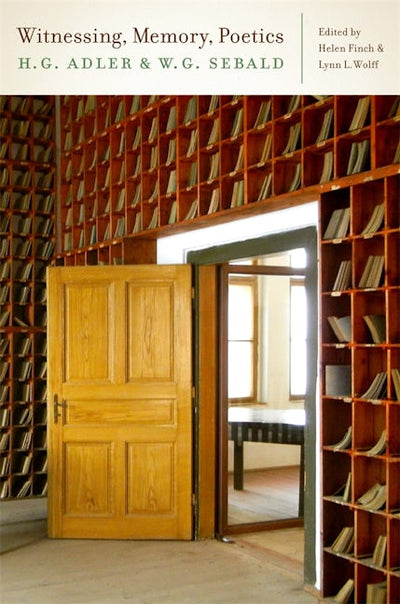

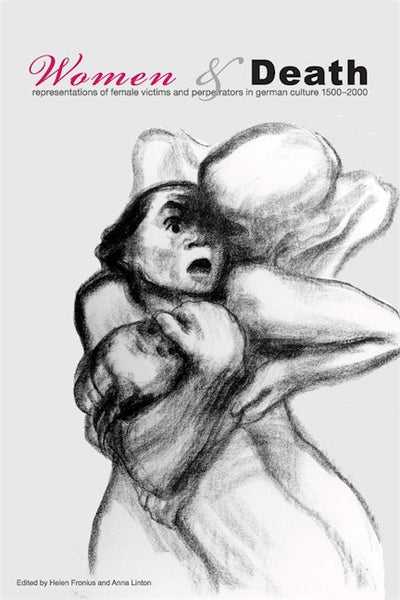

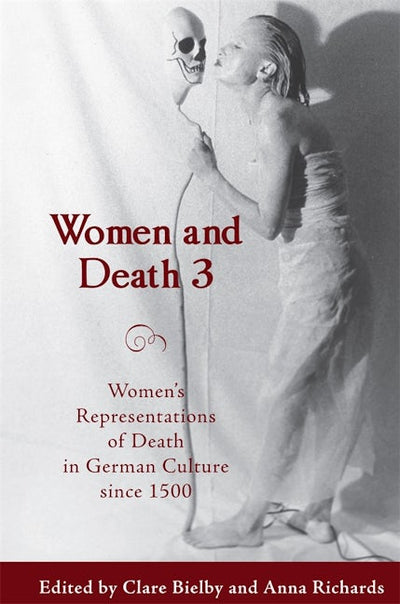
![Women and Death [3 volume set]](http://indiepubs.com/cdn/shop/files/9781571135230_400x.jpg?v=1719574789)



